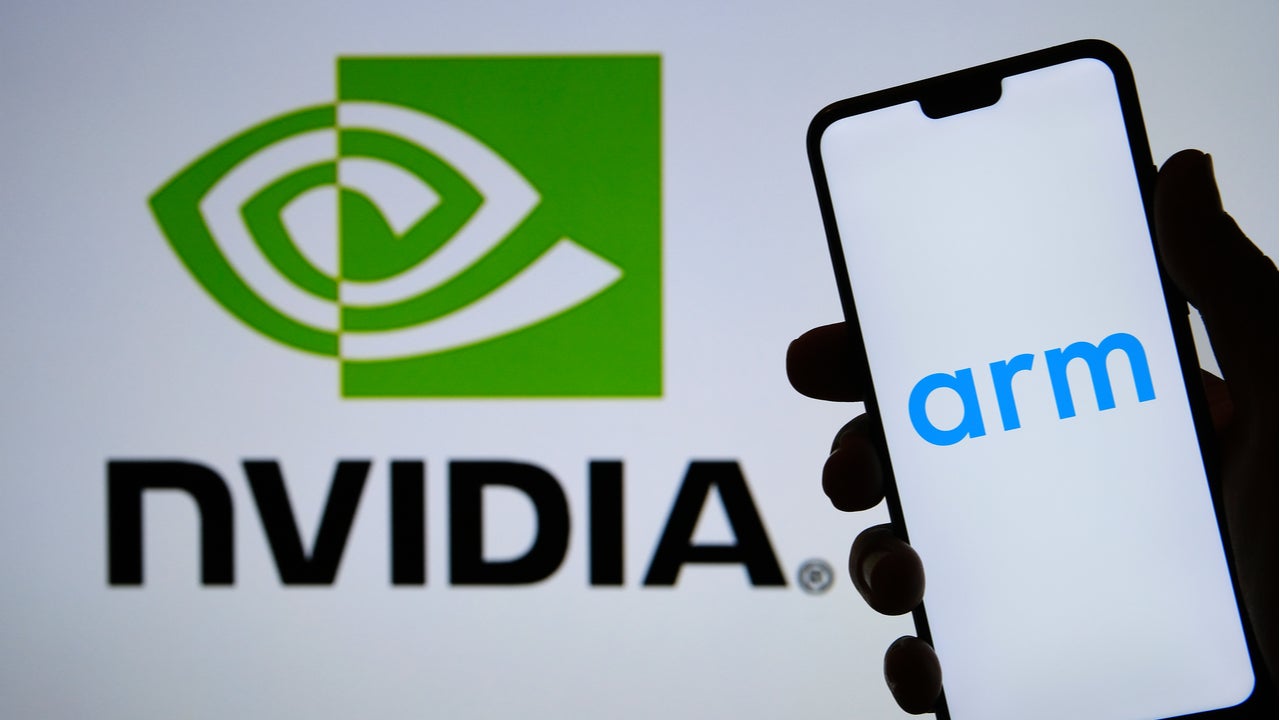
Some 16 months on from NVIDIA’s original acquisition announcement of ARM, the tech and regulatory landscapes have changed dramatically. Though Arm is a highly significant global company, licensing underlying chip designs to chip makers and buyers alike, Nvidia is now said to be preparing for a graceful exit from its proposed purchase.
Big Arm customers were not happy at the prospect of a single chip company controlling the company, triggering an onslaught of regulatory scrutiny and criticisms. Nvidia’s tiny $1.25 billion ‘oops, no thank you’ fee is considerably cheaper than the $40 billion it had earmarked for a headache it no longer wants, and which is increasingly irrelevant to its future strategy. Nvidia no longer needs Arm.
Enter the metaverse
Technology evolution stops for no one. Arm faces an existential threat from RISC-V in the next five years, especially in the semiconductor-hungry powerhouse of China. When Nvidia’s bid was announced in September 2020 and valued at $40 billion, the metaverse—a virtual world where users share experiences and interact in real-time within simulated scenarios—was barely a twinkle in the eyes of ‘crypto bros’ worldwide. Now, Nvidia’s future has changed. Its Omniverse platform and chip prowess signal its impending position as an overlord of the metaverse.
The regulatory landscape has transformed
Meanwhile in meatspace, regulation has heated up in all corners of the globe, and Big Tech is under the microscope. The days of long, drawn-out M&A bids are over. Tying the acquisition up for another two years is not in anyone’s best interests—not Nvidia’s and certainly not ARM’s. The acquisition faced scrutiny on antitrust grounds on both sides of Atlantic, with a three-pronged attack from the US FTC, the UK CMA, and the EU regulator.
In the unlikely event that the deal managed to clear those hurdles, it is almost certain that Chinese regulators would have thrown another spanner in the works. In November 2021, the CMA put another nail in the deal’s coffin by announcing a second phase review on the grounds of national security. This was a clear signal to all parties that the UK government did not want the deal to proceed in the original manner. Why? Most likely because Arm is a home-grown, leading-edge, UK tech company—and it would be a shame to lose it.
What next for Arm and Softbank?
Without the financial backing of a Nvidia acquisition, Arm will have to narrow its focus and curtail R&D efforts. Arm needs cash, but it is clear that newly-empowered regulators will stop a single takeover of Arm by anyone. SoftBank desperately wants an exit strategy, and it has three options: a takeover, a float, or a private equity consortium.
How well do you really know your competitors?
Access the most comprehensive Company Profiles on the market, powered by GlobalData. Save hours of research. Gain competitive edge.

Thank you!
Your download email will arrive shortly
Not ready to buy yet? Download a free sample
We are confident about the unique quality of our Company Profiles. However, we want you to make the most beneficial decision for your business, so we offer a free sample that you can download by submitting the below form
By GlobalDataA takeover is unlikely, and the UK’s National Security and Investment Act, which came into force in January 2022, will further corner any would-be new semiconductor buyers. Softbank could return Arm to where it found it: the stock market. Though an IPO would take at least six months to organize, there would be more than enough investors willing and able to put their pennies in and acquire strategic stakes—including those that opposed the original deal.
In the event of a float, it would be no big stretch of the imagination for Apple, Qualcomm, Broadcom (and possibly even TSMC) to take strategic stakes in Arm, with Softbank retaining a minority share, given the sunk financial and emotional costs it has already endured. An IPO, in either the UK or the US, has been discussed. It is likely that the UK government, particularly Chancellor Rishi Sunak, would welcome a UK float, giving the LSE its own homegrown chipmaker stock to parade to the Nasdaq.
A third, viable option is a consortium-backed PE deal.
Arm replicating a template for success?
In 2012, Intel, TSMC, and Samsung’s investment in ASML helped fund the development of its ultra-violet chip (EUV) printing technology, a foundational element for (almost) every type of semiconductor today. The three invested $3.2 billion between them to acquire 23% of the company, with Intel putting in the lion’s share for 15%. ASML is now the Atlas company of the entire semiconductor industry.
This success story could serve as a template for Arm to follow—either in the case of an IPO or a consortium-backed PE deal. An analogous, pre-competitive, cooperative, strategic investment by its biggest clients could give Arm a leg to stand on.




Related Company Profiles
Apple Inc
Intel Corp
SoftBank Group Corp
Qualcomm Inc
SoftBank Corp